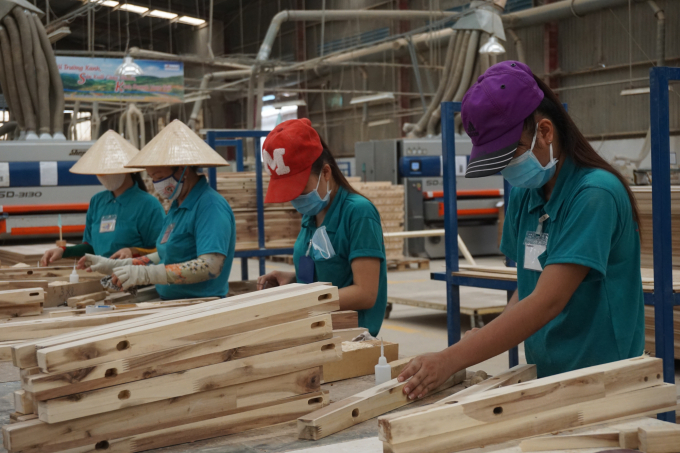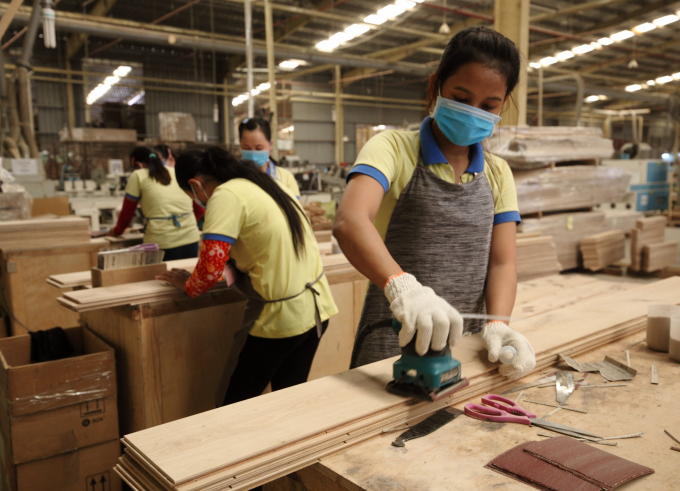May 21, 2025 | 04:00 GMT +7
May 21, 2025 | 04:00 GMT +7
Hotline: 0913.378.918
May 21, 2025 | 04:00 GMT +7
Hotline: 0913.378.918

In the first 9 months of 2020, the management authority of Convention on International Trade in Endangered Species of Wild Fauna and Flora (CITES) received 113 dossiers via the national one-door portal. Among those, 108 cases have been resolved. Photo: TCLN.
Convention on International Trade in Endangered Species of Wild Fauna and Flora (CITES) is an international agreement which aims is to ensure that international trade in specimens of wild animals and plants does not threaten their survival.
Accordingly, all import, export, re-export and introduction of species covered by the Convention have to be authorized through a licensing system.
So far, the issuance of CITES permits in Vietnam have been conducted effectively through the national one-door portal, according to the Vietnam Administration of Forestry (VNFOREST), Ministry of Agriculture and Rural Development.
Since July 1, 2020, Viet Nam CITES Management Authority, VNFOREST has received 113 dossiers through the national one-door portal. Accordingly, 108 cases have been resolved, 103 permits have been granted and 5 dossiers are being processed.
This is a prime example of the application of information technology in VNFOREST’s administration reform. Besides, the organization also makes good use of e-office and other software, while constantly updating database in order to better their services.
Besides the use of online platform, VNFOREST also strives to improve their administrative procedures by organizing meetings with locals and businesses in order to quickly find out the obstacles that they are encountering, especially in terms of logging and harvesting non-timber forest products, and thereby assisting them in resuming and stabilizing production and operation, especially given Covid-19 pandemic.
Regarding public finance, details of budget spending have been updated on the Treasury and Budget Management Information System (TABMIS).
In addition, the state budget expenditure of 2020 was reviewed and implemented while that of 2021 has been estimated and submitted to the Ministry of Agriculture and Rural Development for overall planning.
VNFOREST has also conformed to the regulation on in-house spending and public property management while ensuring efficient spending.

In the next three months of 2020, VNFOREST will continue to leverage the application of e-office, software, national one-door portal and in-house assessment through ISO system. Photo: TCLN.
As part of the administrative reform program, in the next three months of 2020, VNFOREST will continue to leverage the application of e-office, software, national one-door portal and in-house assessment through ISO system.
Besides, the organization will also carry on to develop legal documents, legal plans, while promoting dissemination of legal knowledge and implementing 2020’s inspection plans.
The Peer Assessment Rating or PAR Index plan will also be utilized to assess and better VNFOREST’s performance.
VNFOREST will also carry out the project of strengthening the organizational structure, which involves staff downsizing, efficiency improvements and mechanism renewal. Trainings are expected to provided, in order to improve the staff competence.
In terms of public financial management reform, VNFOREST will continue to estimate the expenditure effectively and disburse the budget as planned. Regulation on in-house spending and public property management will be also satisfied.
Author: Nguyen Huan. Translated by Meagan Phan. Edited by Duc Huy.

(VAN) Dong Thap farmers attained an average profit margin of 64% during the summer-autumn 2024 crop (first season), while An Giang and Kien Giang farmers followed with 56% and 54%, respectively.

(VAN) As a doctoral student doing research on renewable energy and electrification at Harvard University, the author shares his musings on electricity, nature, and countryside memories.

(VAN) The decree on Extended Producer Responsibility (EPR) ensures transparent management and disbursement of support funds, avoiding the creation of a “give-and-take” mechanism.

(VAN) Hue City rigorously enforces regulations regarding marine fishing and resource exploitation, with a particular emphasis on the monitoring of fishing vessels to prevent illegal, unreported, and unregulated (IUU) fishing.

(VAN) Hanoi People's Committee has issued a plan on reducing greenhouse gas emissions in the waste management sector with 2030 vision.

(VAN) Vietnam's draft amendment to Decree No. 156 proposes a mechanism for medicinal herb farming under forest canopies, linking economic development to population retention and the sustainable protection and development of forests.

(VAN) In reality, many craft village models combined with tourism in Son La have proven effective, bringing significant economic benefits to rural communities.